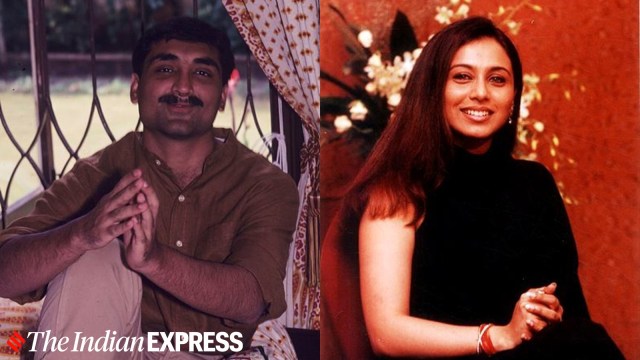📣 For more lifestyle news, click here to join our WhatsApp Channel and also follow us on Instagram
‘She does not like Rani much, but…’: When Aditya Chopra left his family home and stayed in a hotel over opposition to Rani Mukerji; expert on love after divorce
The resistance stemmed from filmmaker Aditya Chopra’s previous marriage to Payal Chopra
 Choosing to stand by his relationship with Rani Mukerji, Aditya Chopra walked out and stayed in a hotel for some time. (Source: Express archive photo)
Choosing to stand by his relationship with Rani Mukerji, Aditya Chopra walked out and stayed in a hotel for some time. (Source: Express archive photo)Aditya Chopra and Rani Mukerji’s love story may have had a happy ending, but it wasn’t without its share of turmoil.
Despite being one of Bollywood’s most powerful couples today, their relationship faced strong opposition from Aditya’s parents, Yash and Pamela Chopra. The resistance stemmed from the filmmaker’s previous marriage to Payal Chopra, whom his parents deeply adored. Reports suggested that after Aditya and Payal divorced, Rani was unfairly blamed for their separation, leading to tensions within the Chopra family.
According to Mumbai Mirror, the situation escalated to the point where Aditya Chopra was asked to leave his family home. Choosing to stand by his relationship, Aditya walked out and stayed in a hotel for some time. His mother, Pamela, who was unable to bear the distance from her son, eventually relented and accepted Rani into the family.
A source close to the family shared with Mumbai Mirror, “Adi is back because his mother was very keen to have her son back home. She does not like Rani much, but has had to bend because she could not stay away from her son. A family reunion has happened and now things are better, though still not fully fine. In fact, he categorically told his parents that he would shift only if they did not interfere in his personal life.”
But, how common is family opposition in relationships, especially after a divorce, and what psychological impact does it have on both partners?
Aparna Rani, clinical psychologist at Cadabams Hospitals, tells indianexpress.com, “Family disapproval in romantic partnerships is surprisingly common, particularly in cultures where marital decisions are considered a collective family concern rather than an individual choice. Post-divorce relationships are especially vulnerable to this, as families may carry apprehensions stemming from past trauma, societal judgment, or fears of history repeating itself.”
View this post on Instagram
Psychologically, the partner facing family opposition often feels caught between loyalty to their family and commitment to their relationship. This internal struggle can lead to anxiety, guilt, and emotional exhaustion. On the other hand, the partner being rejected may experience feelings of inadequacy and alienation, particularly if they feel unfairly judged or held to unrealistic standards.
“Studies on interpersonal rejection sensitivity suggest that when family opposition is left unaddressed, it can increase relationship stress and emotional dysregulation. Open communication and mutual support are crucial in navigating these challenges,” Rani explains.
How does parental acceptance or rejection impact long-term relationship dynamics?
Parental support — or the lack thereof — can have a lasting effect on marital satisfaction. “When families embrace a partner, the couple benefits from a strong support system, smoother family interactions, and a sense of social cohesion. In contrast, ongoing parental rejection can lead to chronic stress, strained family occasions, and emotional isolation,” Rani explains.
Research in family systems theory indicates that unresolved triangulation—where a third party (in this case, a parent) becomes emotionally entangled in the couple’s conflicts—can disrupt marital harmony. Couples constantly negotiating for family acceptance often experience heightened stress and lower relationship satisfaction.
However, Rani notes that rejection doesn’t always lead to a negative outcome. “Many couples find strength in adversity. Facing opposition together can deepen emotional intimacy, provided they operate as a united front and seek external support, such as therapy, when needed.”
📣 For more lifestyle news, click here to join our WhatsApp Channel and also follow us on Instagram



- 01
- 02
- 03
- 04
- 05
























